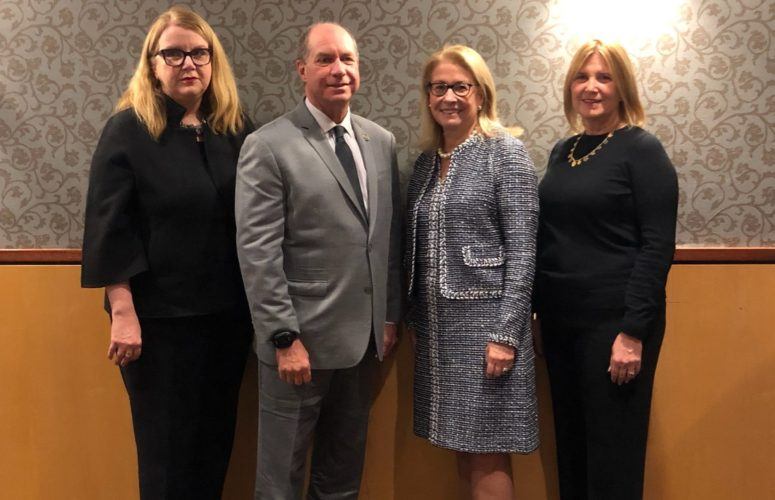
Nation’s First Certified Alcohol and Drug Counselor Apprenticeship Program will Expand
On Dec 13, 2017Continuing in his fight against opioid addiction, Governor Chris Christie announced a statewide expansion of a successful Certified Alcohol and Drug Counselors apprenticeship program, the first of its kind in the nation.
Governor Christie was joined by Department of Labor and Workforce Development (LWD) Commissioner Aaron R. Fichtner, Ph.D., and Rutgers President Robert Barchi for the announcement at the Livingston Student Center on the campus of Rutgers University-New Brunswick in Piscataway that the New Jersey Healthcare Talent Development Center (TDC) at Rutgers University will receive $1.3 million to launch the Certified Alcohol and Drug Counselors (CADC) apprenticeship program. The grants are part of a package of initiatives the Governor unveiled in September that commits $200 million to expand the State’s national model programs and services to continue to effectively address New Jersey’s opioid and substance use crisis.
“One of my priorities has been to put more certified alcohol and drug counselors on the ground to tackle the disease of addiction one person at a time,” said Governor Christie. “This successful program creates a pathway for those interested in helping those with substance use disorder through paid on-the-job training. Thank you to Rutgers and President Barchi in seeing this need and partnering with us to provide this crucial training throughout the state.”
The $1.3 million investment will enable Rutgers University to train approximately 200 people in 2018. LWD contributes up to $6,000 per worker, and their employer matches 50 percent of the training cost. The apprenticeship will consist of 270 hours of classroom instruction at Rutgers and 3,100 hours of paid on-the-job training with a participating healthcare employer. Apprentices will learn the science of addiction, counseling techniques, crisis intervention, case management, and addiction recovery while mastering the 45 state-mandated core competencies. This is the first time CADC training is being offered in an earn-while-you-learn apprenticeship program.
Apprentices who successfully complete the program and pass the state certification exam will be qualified to work as Certified Alcohol and Drug Counselors in addiction treatment centers, community health centers, hospitals, and other direct care settings in New Jersey. This fills a critical need in the healthcare industry, as the Bureau of Labor Statistics projects employment of substance abuse, behavioral disorder, and mental health counselors will grow 20 percent from 2016 to 2026, much faster than the average for all occupations.
“The statewide expansion of the Certified Alcohol and Drug Counselors program fills a need for critical jobs in the war against addiction. Offering the training through apprenticeship allows workers to earn-while-they-learn instead of putting off their education, making our workforce more skilled,” said Labor Commissioner Fichtner.
Today’s announcement expands a successful pilot program, announced by Governor Christie in July, in which the New Jersey Department of Labor’s New Jersey Healthcare Talent Development Center at Rutgers is providing CADC training to 10 case managers at Homeless Solutions in Morristown.
The Certified Alcohol and Drug Counselors Program is part of the ‘65 by 25: Many Paths, One Future’ initiative that strives to help all New Jerseyans find pathways to employment through training aligned to the needs of employers. The goal is to have 65 percent of the workforce equipped with a college degree or industry-valued credential by 2025. Currently, 50 percent of the workforce meets that criteria.
Related Articles:





